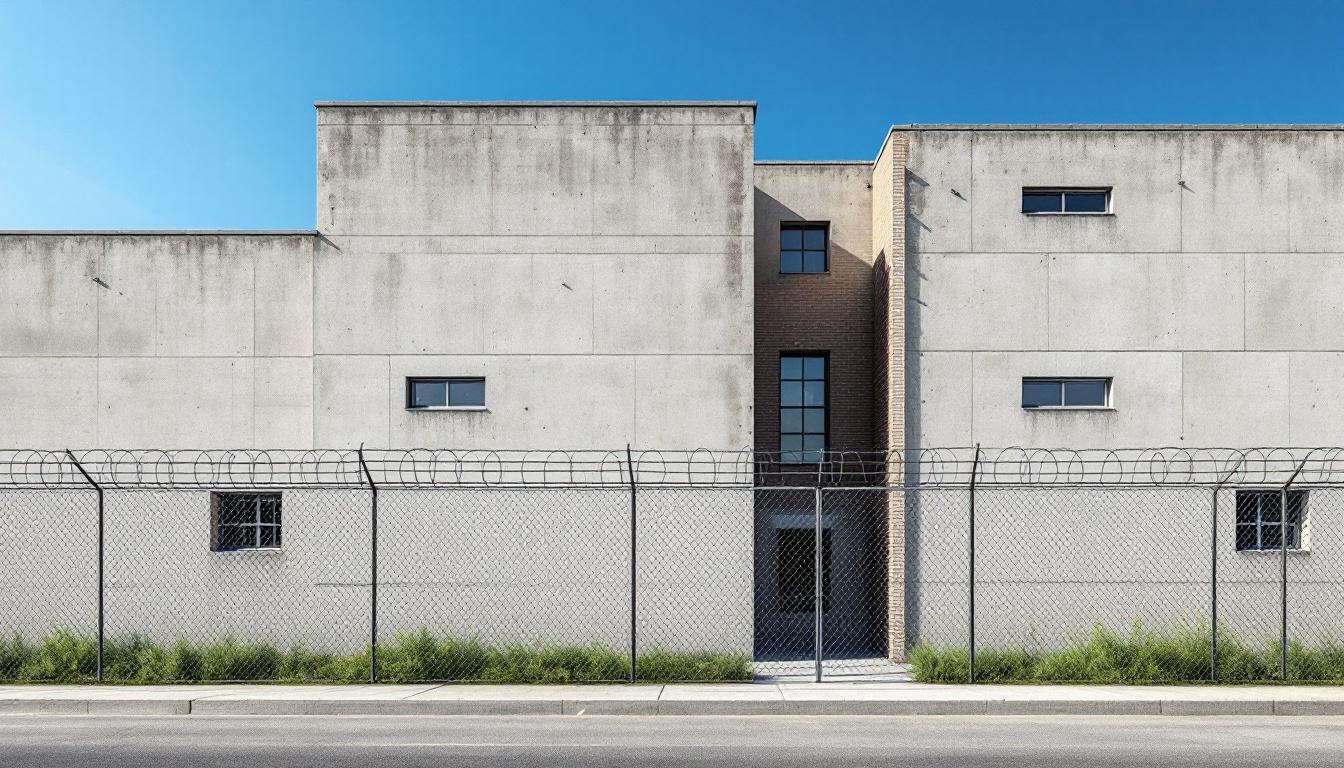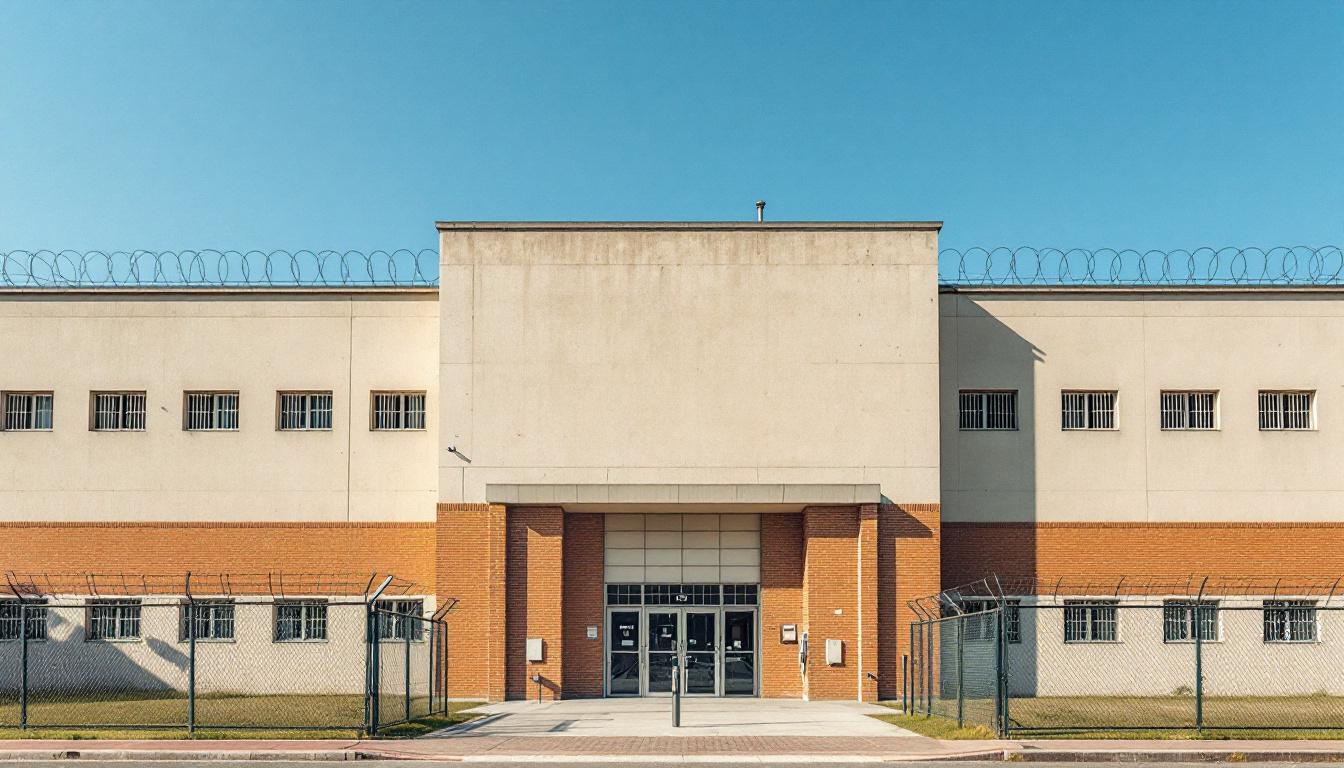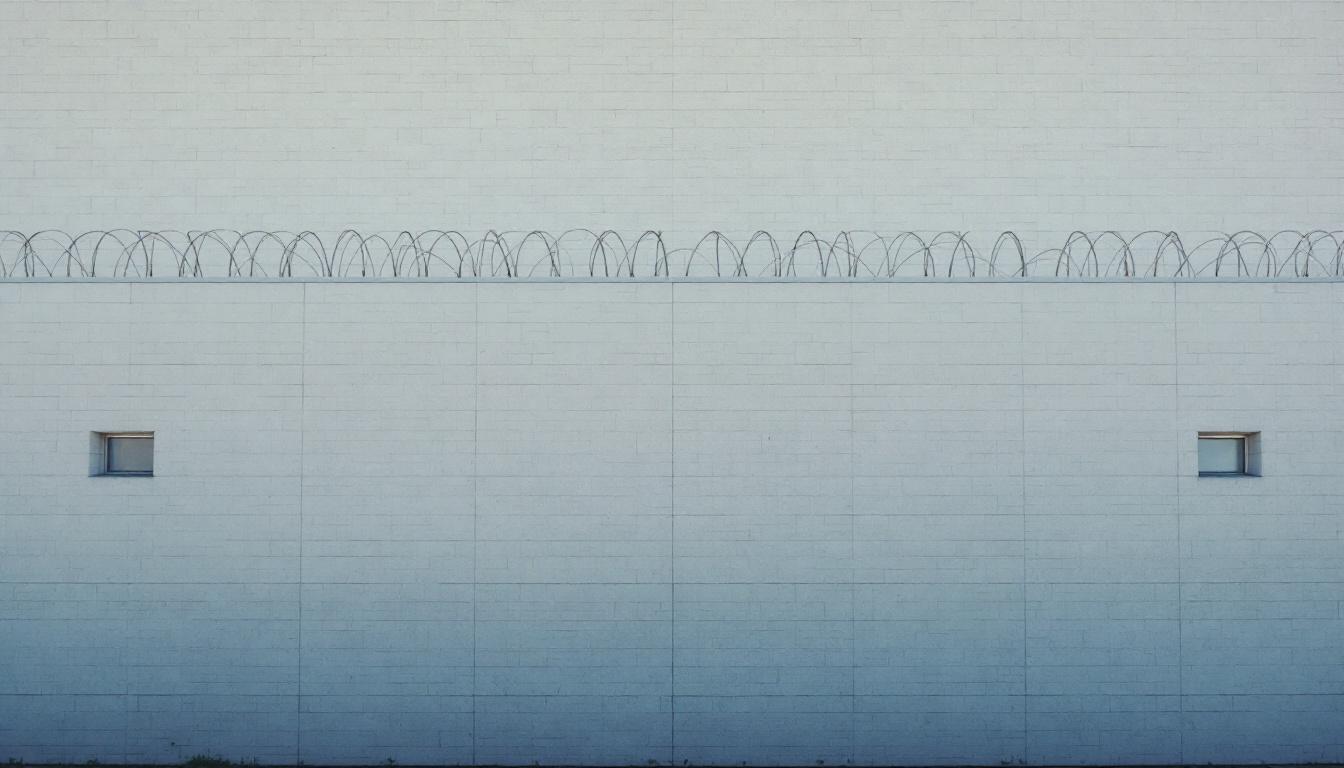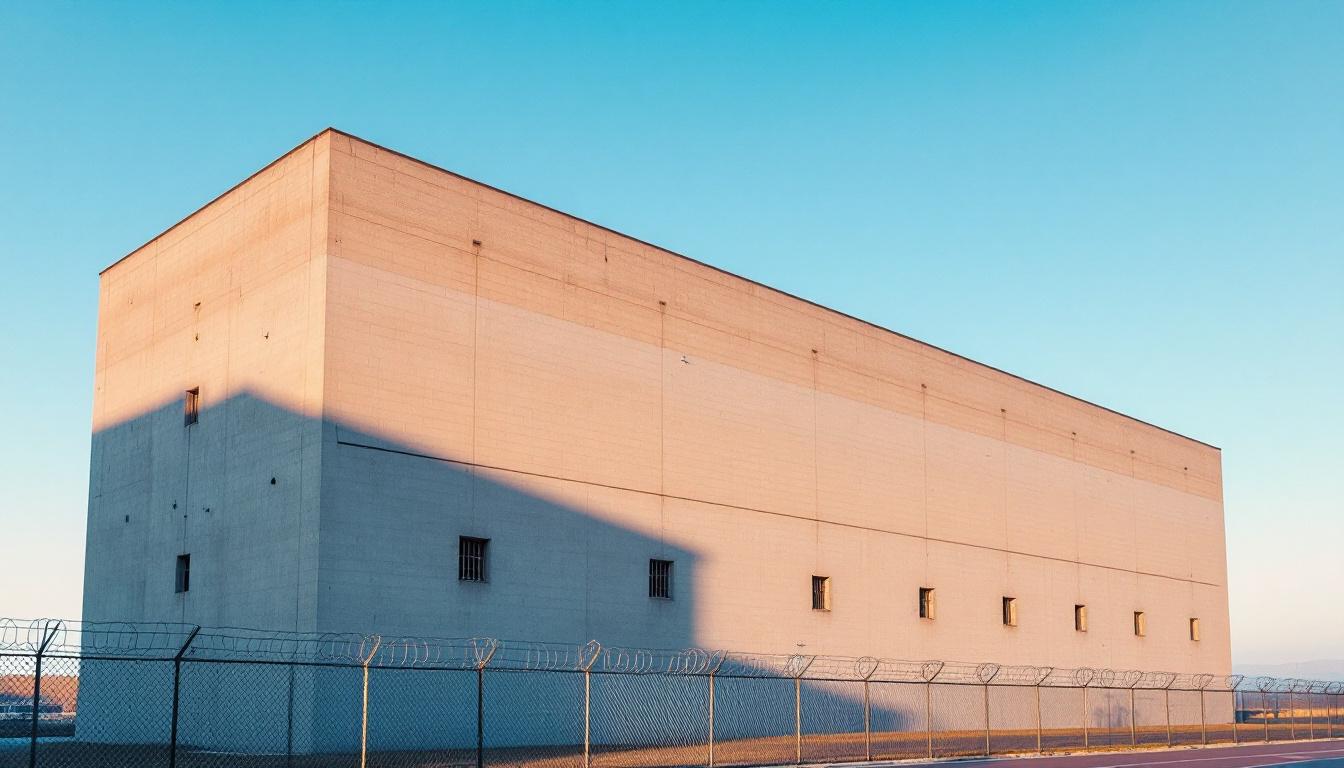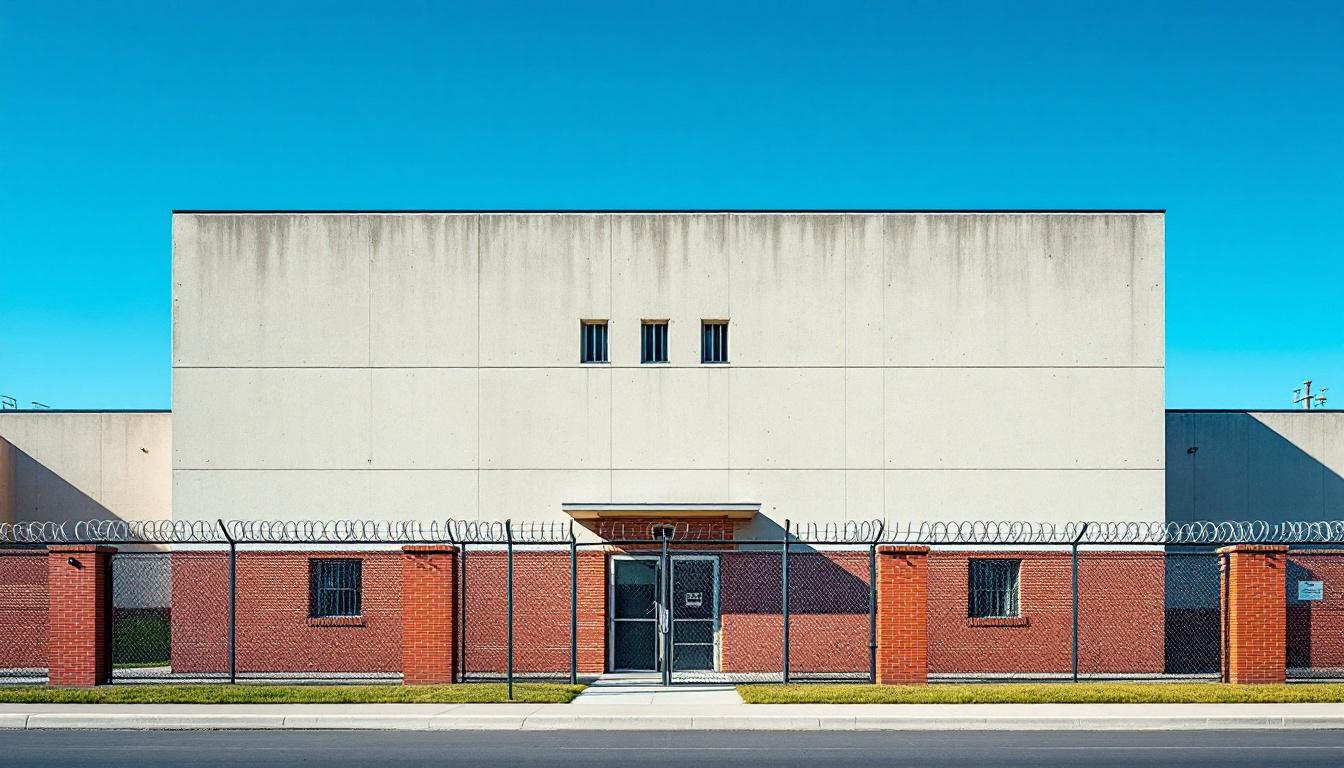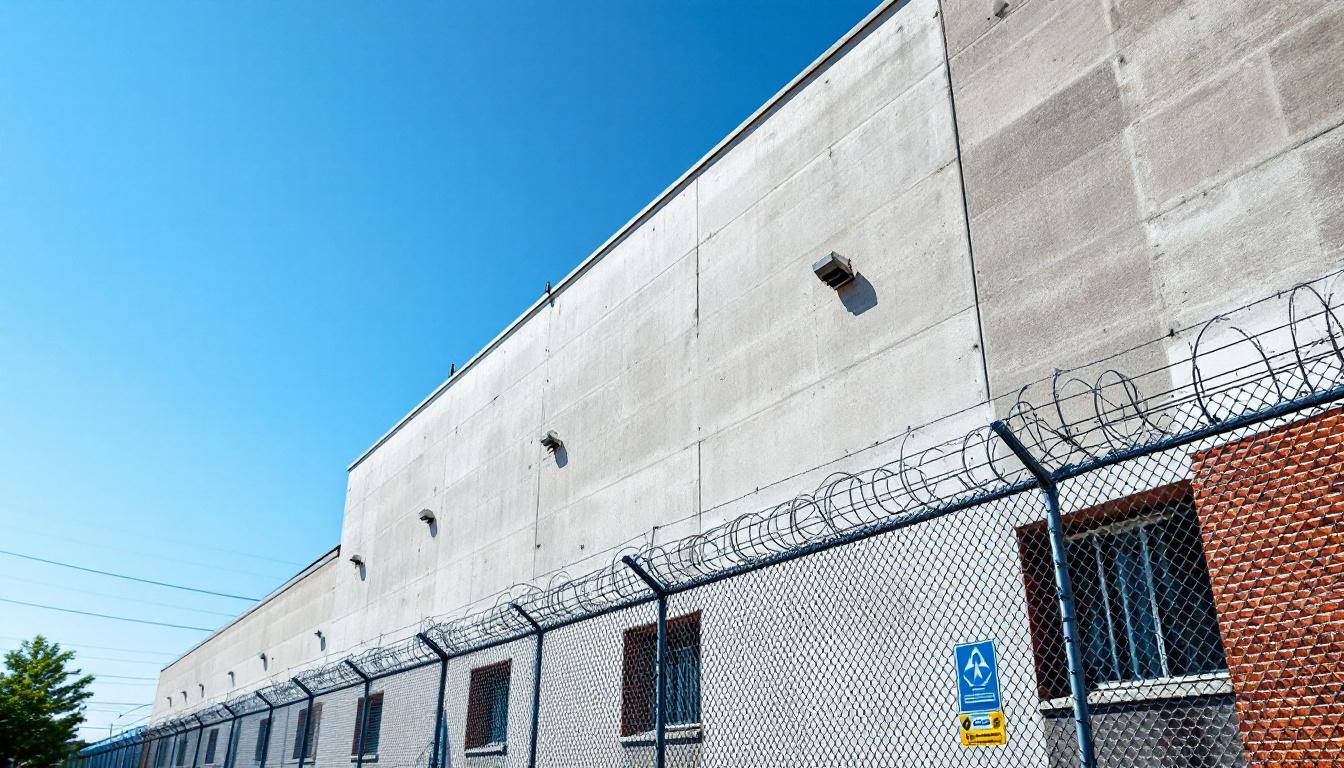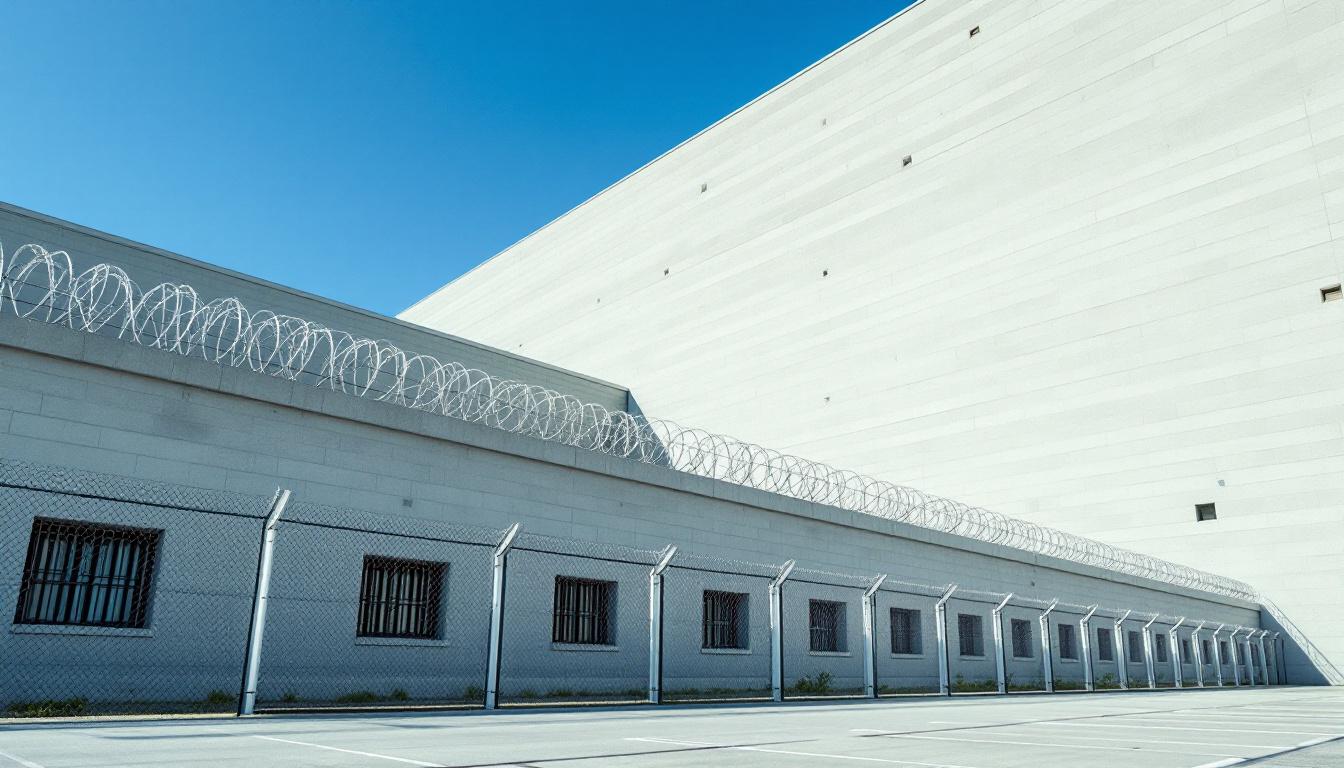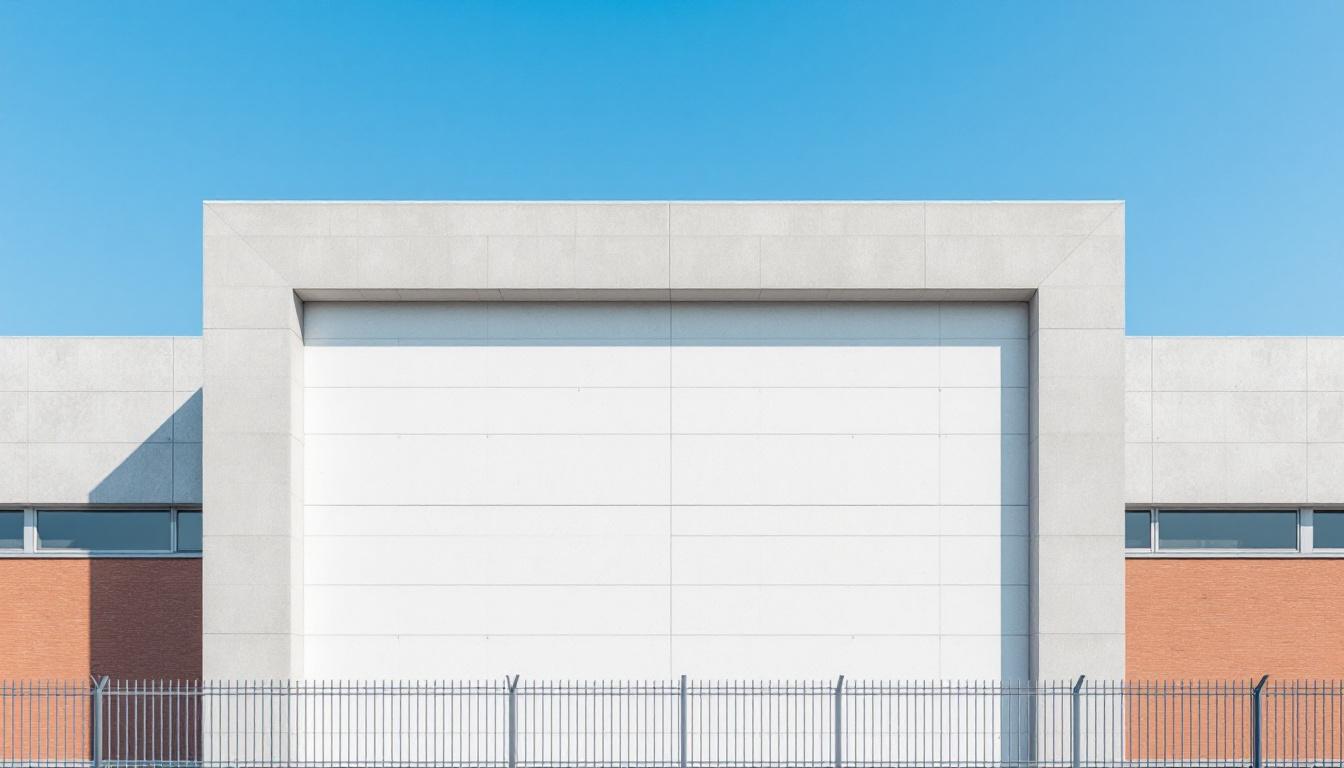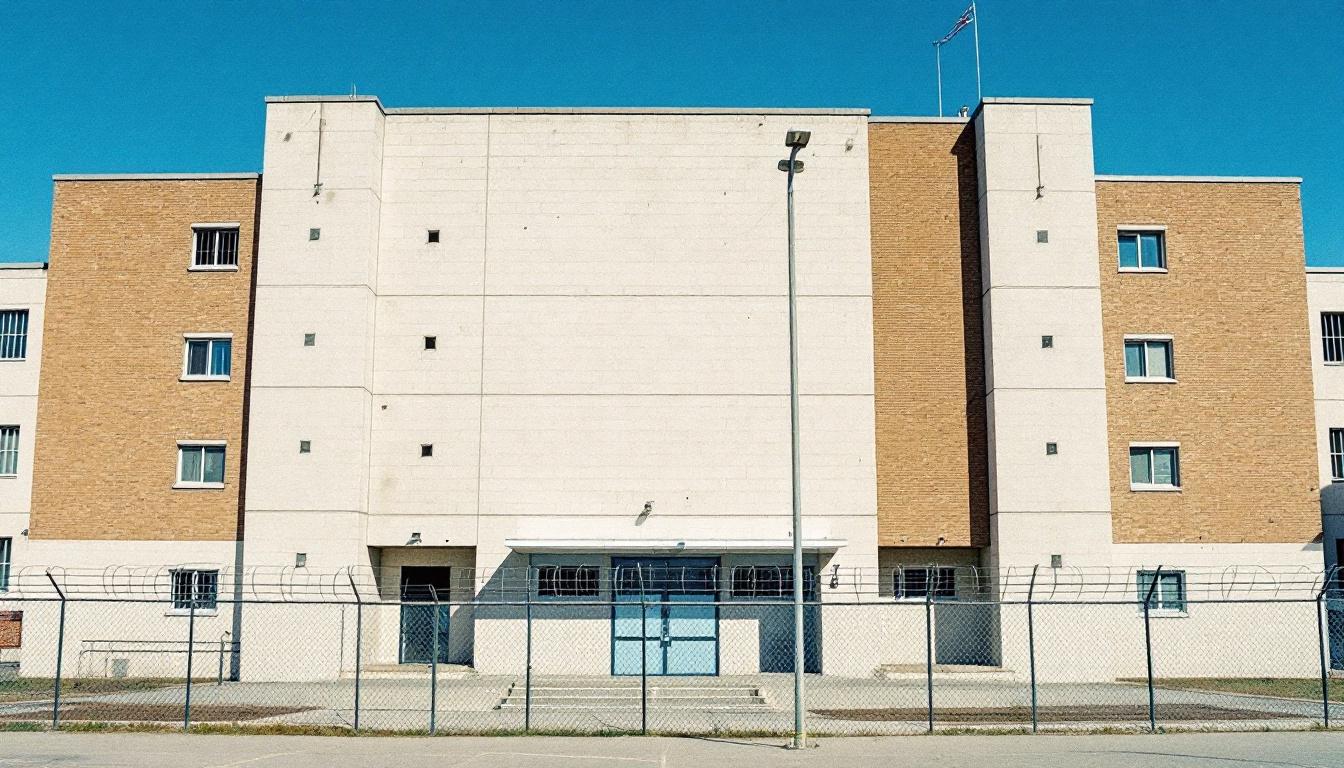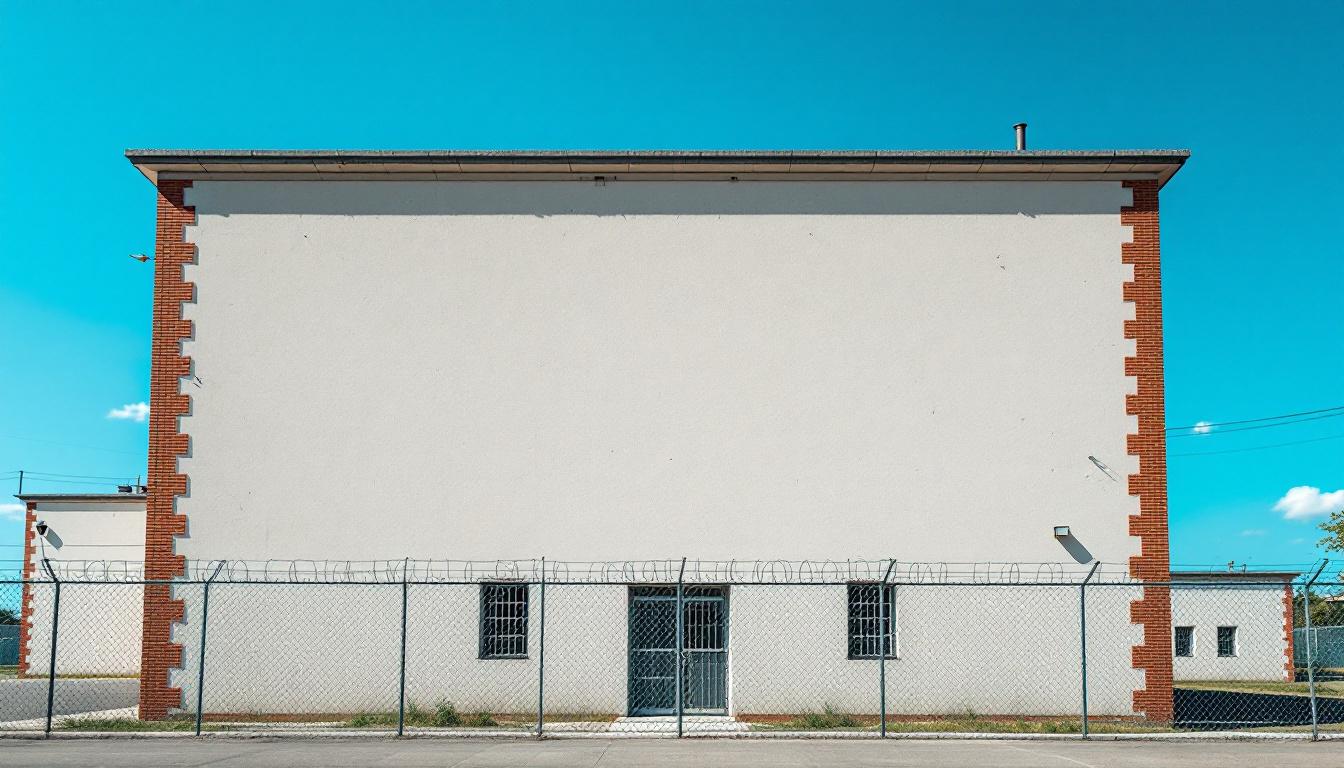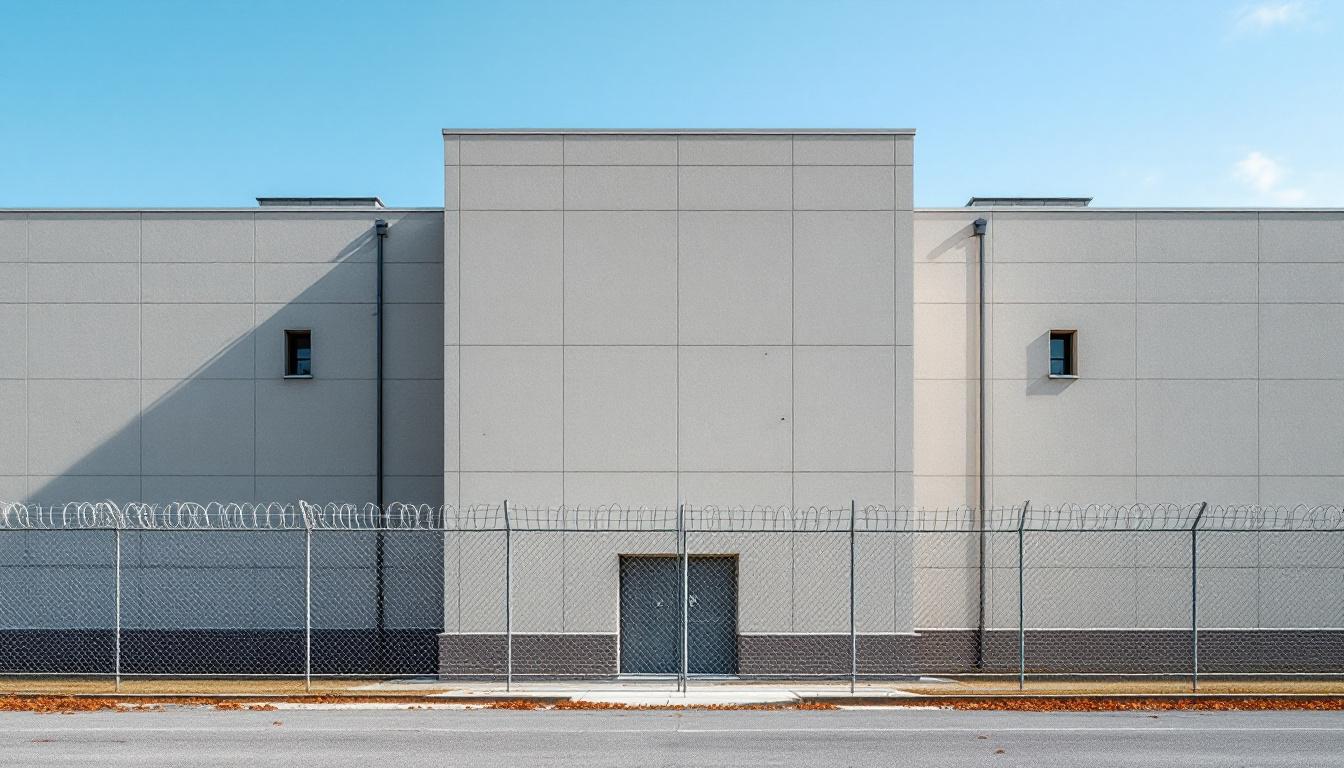
Quick Navigation
How to contact an inmate at Hardeman County Correctional
This comprehensive guide will walk you through how to connect with an inmate at Hardeman County Correctional. Follow the steps below to find an inmate and send letters and photos:
- Search for the inmate using our search tool below
- Create your account or log in to Penmate
- Write your message (up to 6,000 characters)
- Send instantly - inmates receive printed copies daily
Find an Inmate
Search for an inmate to start communicating today
Tip: You can search by first name, last name, or inmate ID number
To contact a person at Hardeman County Correctional start by searching for the person on the official facility website. Perform a search by following these steps:
- Step 1: Enter their first name and last name into the search form and click "Search"
- Step 2: Locate their inmate record
- Step 3: Write down their Inmate ID and any housing information provided
Important! Be sure to enter the person's full name. Nicknames should not be used.
How to Send Messages to Inmates

You can use your phone or computer to send emails, letters, and photos to an inmate. Messages are sent electronically to inmate tablets or kiosks at the facility. If you would like to send a message, start by searching for an inmate at Hardeman County Correctional.
Sending Photos and Postcards

A great way to send love and support to a loved one at Hardeman County Correctional is to send photos and postcards. It only takes a few minutes to send photos from your phone and it makes a huge difference. You can also mail postcards with words of support and inspiration, or design your own postcard for special moments like birthdays and holidays.
Important! Be sure not to send any explicit photos or they may not be approved by the facility. You can also use a photo printing app like Penmate to make sure your photos are printed at the correct size (4x6 or 3x5) and are mailed according to the rules and regulations of Hardeman County Correctional.
Frequently asked questions about Hardeman County Correctional
-
How long does it take to deliver a message?
If you're sending an email message your letter is usually delivered within 24-48 hours. For messages sent via mail you should expect delivery within 3-7 days. All messages will need be approved by Hardeman County Correctional.
-
How much does it cost to send a message to Hardeman County Correctional?
You can send a message free using your phone or mail a message via USPS for the price of a $0.60 stamp and envelope. You can also purchase credits or e-stamps from services starting at $1.99.
-
What services can I use to contact an inmate at Hardeman County Correctional?
Penmate
You can use Penmate to send letters and photos to an inmate from your phone. It's an easy way to stay in touch during your loved one's incarceration. Use the inmate locator to find an inmate's location and contact information, then you can send messages within a few minutes.
Securus messaging
Securus may be another option for communicating with an inmate at Hardeman County Correctional. You can create a friends and family account and purchase credits to send messages. All messages will be reviewed and must be approved by the facility.
JPay
Some county jails and state prisons may support sending messages with JPay. You must register an account with the system, find your loved one, and purchase stamps to send messages. For some locations you can also attach photos.
Smart Jail Mail
You may also check if Smart Jail Mail is available at Hardeman County Correctional. Smart Jail Mail is operated by Smart Communications and has contracted with some state and county jails. After purchasing credits, your messages and photos are sent to the facility, printed out, and then handed out to your loved one.
-
What is the mailing address of Hardeman County Correctional?
Mailing address:
Hardeman County Correctional
2520 Union Springs Rd
Whiteville, TN 38075
Phone: (731) 254-6000Business hours:
- Monday: 8:00 AM – 4:00 PM
- Tuesday: 8:00 AM – 4:00 PM
- Wednesday: 8:00 AM – 4:00 PM
- Thursday: 8:00 AM – 4:00 PM
- Friday: 8:00 AM – 4:00 PM
- Saturday: Closed
- Sunday: Closed
-
What are the visiting hours at Hardeman County Correctional?
Visiting hours at Hardeman County Correctional vary by housing unit and security level. Generally, visits are scheduled on weekends and holidays, with some facilities offering weekday visits. Contact the facility directly at (731) 254-6000 or check their website for the current visiting schedule. Visits typically last 30-60 minutes and must be scheduled in advance.
-
What items are prohibited when sending mail to Hardeman County Correctional?
Prohibited items typically include: cash, personal checks, stamps, stickers, glitter, glue, tape, staples, paperclips, polaroid photos, musical or blank greeting cards, hardcover books, magazines with staples, and any items containing metal or electronics. Only send letters on plain white paper with blue or black ink. Photos must be printed on regular photo paper (no Polaroids). Always check with Hardeman County Correctional for their specific mail policies.
-
How do I send money to an inmate at Hardeman County Correctional?
You can send money to an inmate at Hardeman County Correctional through several methods: 1) Online using JPay, Access Corrections, or the facility's approved vendor, 2) Money orders mailed directly to the facility with the inmate's name and ID number, 3) Kiosks located in the facility lobby, or 4) Over the phone using a credit or debit card. Fees vary by method, typically ranging from $2.95 to $11.95 per transaction.
-
Can I schedule a video visit with an inmate at Hardeman County Correctional?
Many facilities now offer video visitation as an alternative to in-person visits. At Hardeman County Correctional, video visits may be available through services like Penmate, Securus Video Connect, GTL, or ICSolutions. Video visits typically cost $10-20 for 20-30 minutes and must be scheduled in advance. You'll need a computer or smartphone with a camera and reliable internet connection. Contact the facility for their specific video visitation policies and approved vendors.
-
What identification do I need to visit an inmate at Hardeman County Correctional?
All visitors must present valid government-issued photo identification such as a driver's license, state ID, passport, or military ID. Minors must be accompanied by a parent or legal guardian who can provide the minor's birth certificate. Some facilities require visitors to be on the inmate's approved visitation list, which may require a background check. Contact Hardeman County Correctional for specific ID requirements and visitor approval procedures.
-
How can I find out an inmate's release date?
To find an inmate's release date at Hardeman County Correctional, you can: 1) Use the online inmate search tool if available, 2) Call the facility's records department, 3) Contact the inmate's case manager or counselor, or 4) Have the inmate provide this information during a call or visit. For privacy reasons, some facilities only release this information to immediate family members.
Facility Overview
Contact Information
Hardeman County Correctional2520 Union Springs Rd
Whiteville, TN 38075
Phone: (731) 254-6000
Official Website

About Hardeman County Correctional
Rehabilitation and successful community reintegration drive the core mission at Hardeman County Jail, TN, where structured programming meets individualized support within the rural Tennessee landscape of Whiteville. This TN correctional facility operates with a comprehensive approach to offender management and support, recognizing that effective incarceration extends far beyond simple containment to encompass meaningful preparation for eventual community return. Located in western Tennessee’s agricultural heartland, the facility serves as a vital component of the region’s criminal justice system while maintaining strong connections to local community resources and support networks.
The facility typically emphasizes evidence-based practices in its approach to those incarcerated services, often incorporating educational opportunities, substance abuse programming, and vocational skill development as core elements of the rehabilitation process. Staff generally work to create an environment where personal accountability meets structured support, helping individuals develop the tools necessary for successful reintegration. Programming may include life skills training, counseling services, and work opportunities that mirror real-world employment expectations, all designed to address the underlying factors that often contribute to criminal behavior.
Within Whiteville’s close-knit community setting, this county jail often collaborates with local organizations and service providers to ensure continuity of care extends beyond release. The facility’s approach to rehabilitation typically recognizes that lasting change requires comprehensive support systems, addressing not dedicated immediate behavioral concerns but also long-term stability factors such as housing, employment readiness, and family relationships. Through this holistic framework, the jail serves as both a secure detention facility and a stepping stone toward productive community membership.
Programs & Services
Personal transformation and skill development form the cornerstone of rehabilitation efforts for those incarcerated at Hardeman County Jail in Tennessee. The facility’s comprehensive approach recognizes that meaningful change occurs through structured opportunities that address both immediate needs and long-term reintegration goals. Through carefully designed offerings that emphasize security, safety, and structured learning environments, participants may engage in evidence-based programming that fosters personal accountability while building essential life skills. This multifaceted framework typically provides pathways for individuals to address underlying issues, develop professional competencies, and strengthen their capacity for successful community reintegration.
Educational advancement and vocational skill development represent fundamental components of the facility’s rehabilitation philosophy. Education services often include literacy programs, GED preparation, and continuing education opportunities that enable participants to strengthen their academic foundations within a secure learning environment. In addition to this academic focus, vocational programs may furnish hands-on training in essential trades such as plumbing and facility maintenance, providing those incarcerated with marketable skills that enhance employment prospects upon release. These structured learning experiences typically emphasize safety protocols and professional standards while fostering a disciplined approach to skill acquisition.
Therapeutic and support services complement the educational framework through comprehensive programming designed to address personal challenges and promote emotional well-being. Group therapy sessions may offer structured environments where participants can explore behavioral patterns, develop coping strategies, and build interpersonal skills under professional guidance. Faith-based programs often provide spiritual support and community connection, while specialized offerings such as domestic violence programs typically address specific behavioral concerns through evidence-based interventions. These therapeutic initiatives generally operate within secure settings that prioritize both participant safety and program integrity, creating opportunities for meaningful personal growth while maintaining institutional security standards.
Daily Life & Visitation
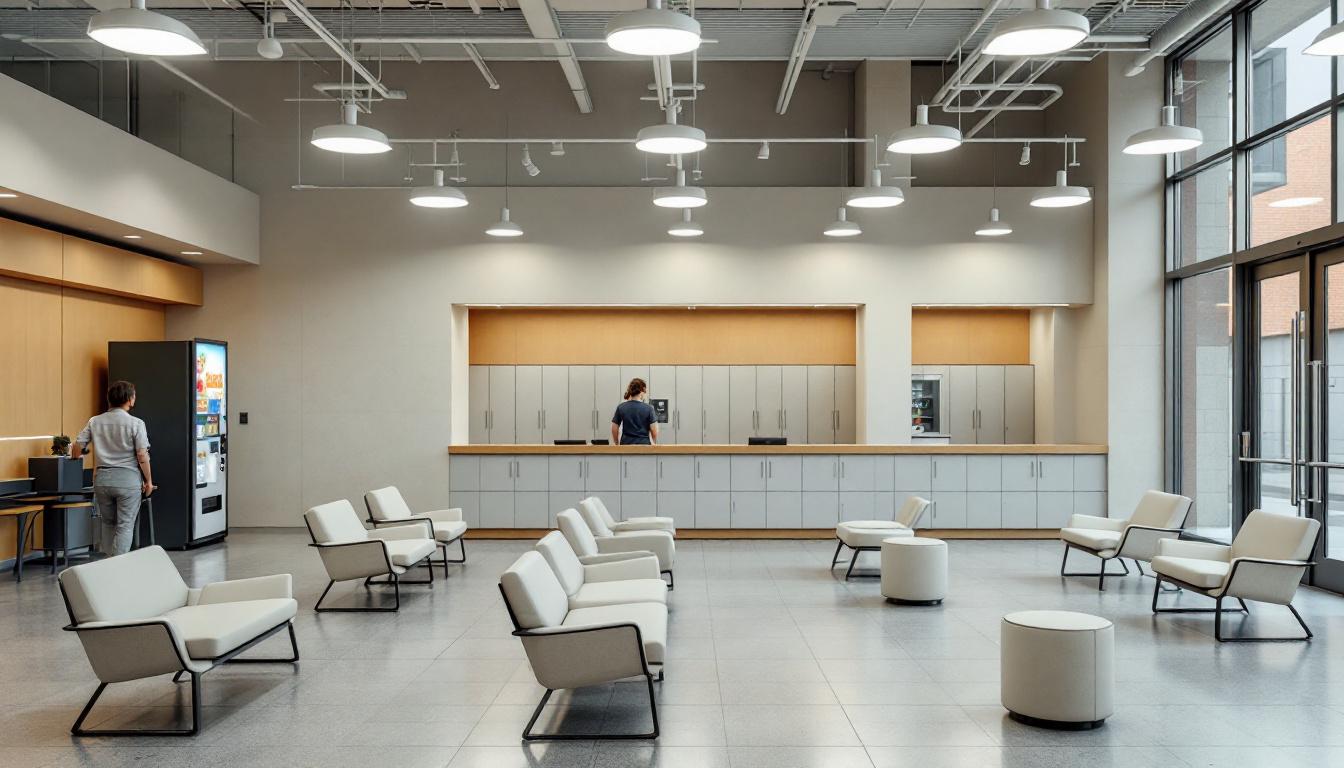
Strong bonds with family members and fellow residents now serve as the foundation for navigating daily routines at Hardeman County Jail, where those incarcerated regularly work to maintain meaningful connections despite the structured environment. The facility’s daily schedule typically begins with early morning counts and meal service, followed by work assignments, programming activities, and designated periods for personal time and communication with loved ones. Those incarcerated generally find that maintaining relationships with the outside community becomes a central focus of their daily experience, as phone calls, written correspondence, and scheduled visitation opportunities furnish essential emotional support throughout their time at the facility.
Living accommodations at the facility typically consist of shared housing units where those incarcerated develop informal support networks and daily routines centered around communal spaces. The dormitory-style or cell-based housing arrangements generally encourage social interaction during designated periods, allowing residents to share meals together in common dining areas and participate in recreational activities that may include television viewing, card games, and conversation. In addition to this structured social time, those incarcerated often find that the commissary system enables them to share resources and maintain small gestures of friendship, while personal property allowances typically permit residents to keep photographs and letters that help preserve connections to their families and communities outside the facility walls.
Programming schedules regularly include educational opportunities, substance abuse counseling, and work assignments that furnish both structure and opportunities for positive social interaction among those incarcerated. Visitation policies generally allow family members and approved visitors to maintain face-to-face contact during scheduled hours, while telephone access and written correspondence typically provide additional avenues for staying connected to support systems in the community. Despite this institutional setting, many residents find that participating in facility jobs, attending group programs, and engaging in recreational activities helps them build constructive relationships with both staff and fellow residents, creating a sense of community that often extends beyond their time at Hardeman County Jail and supports their eventual reintegration into the broader community.
Ready to Connect?
Start communicating with your loved one today
Search for an Inmate
